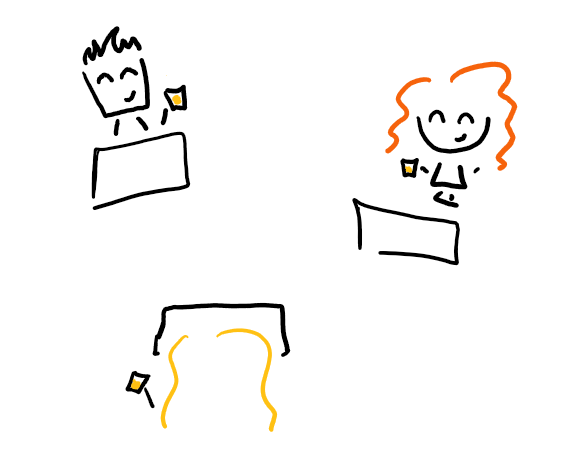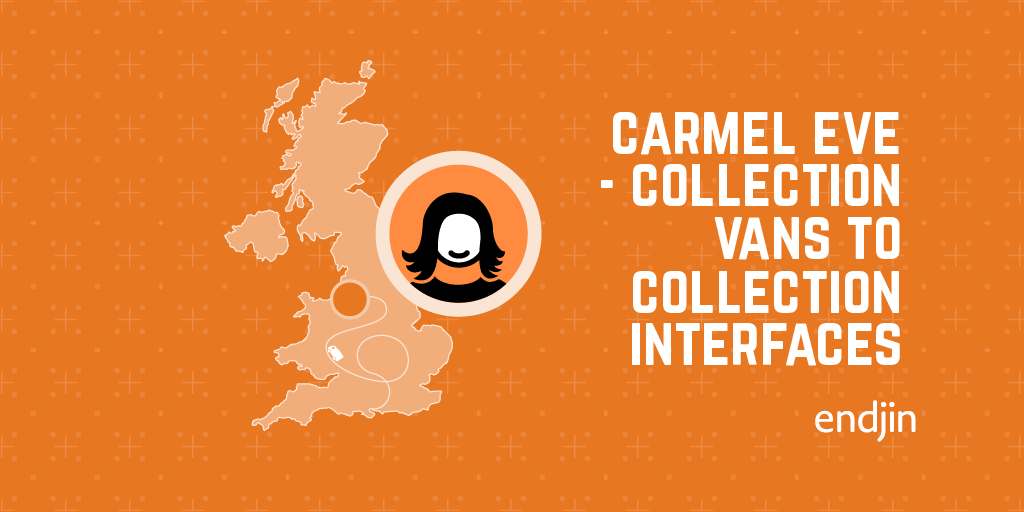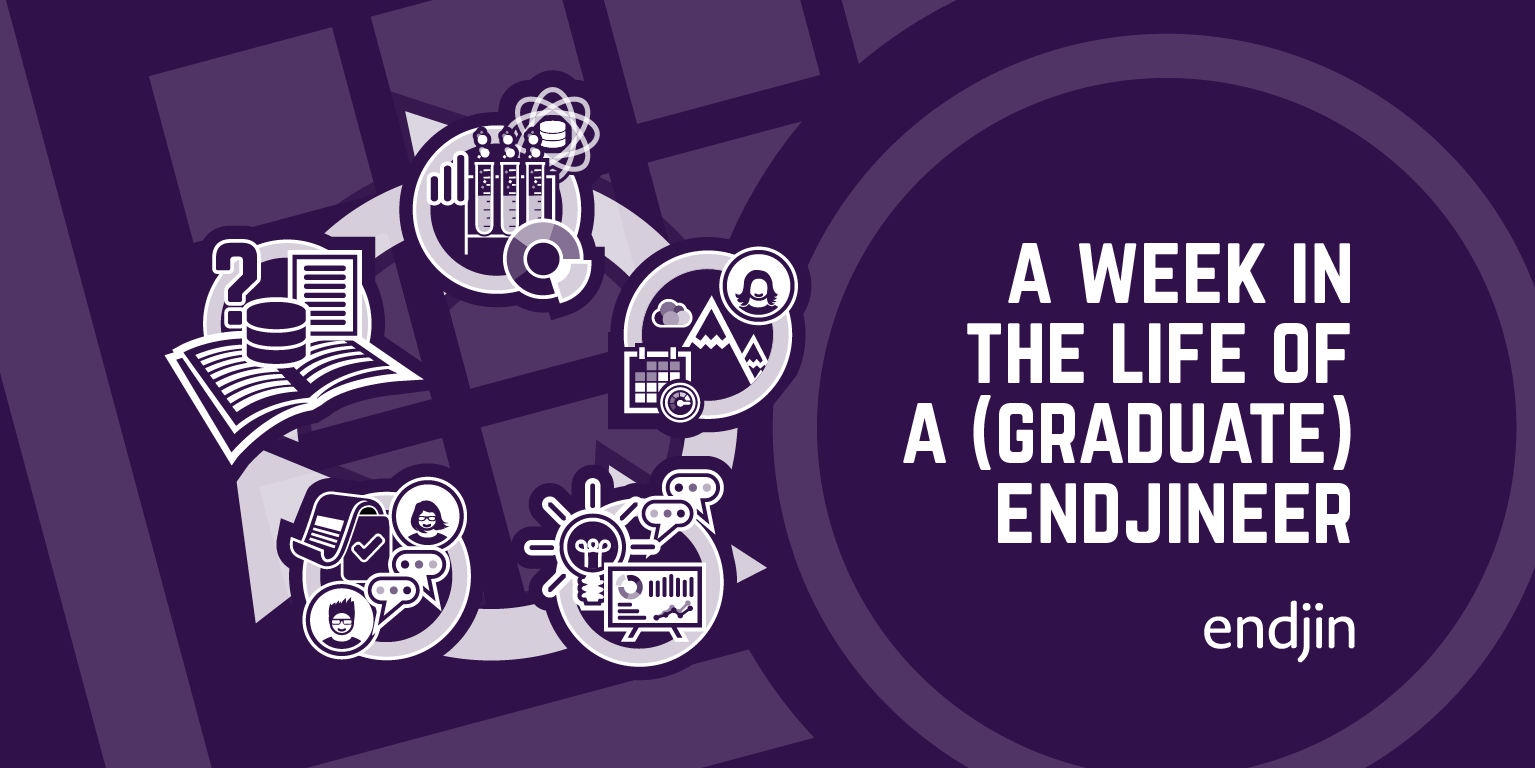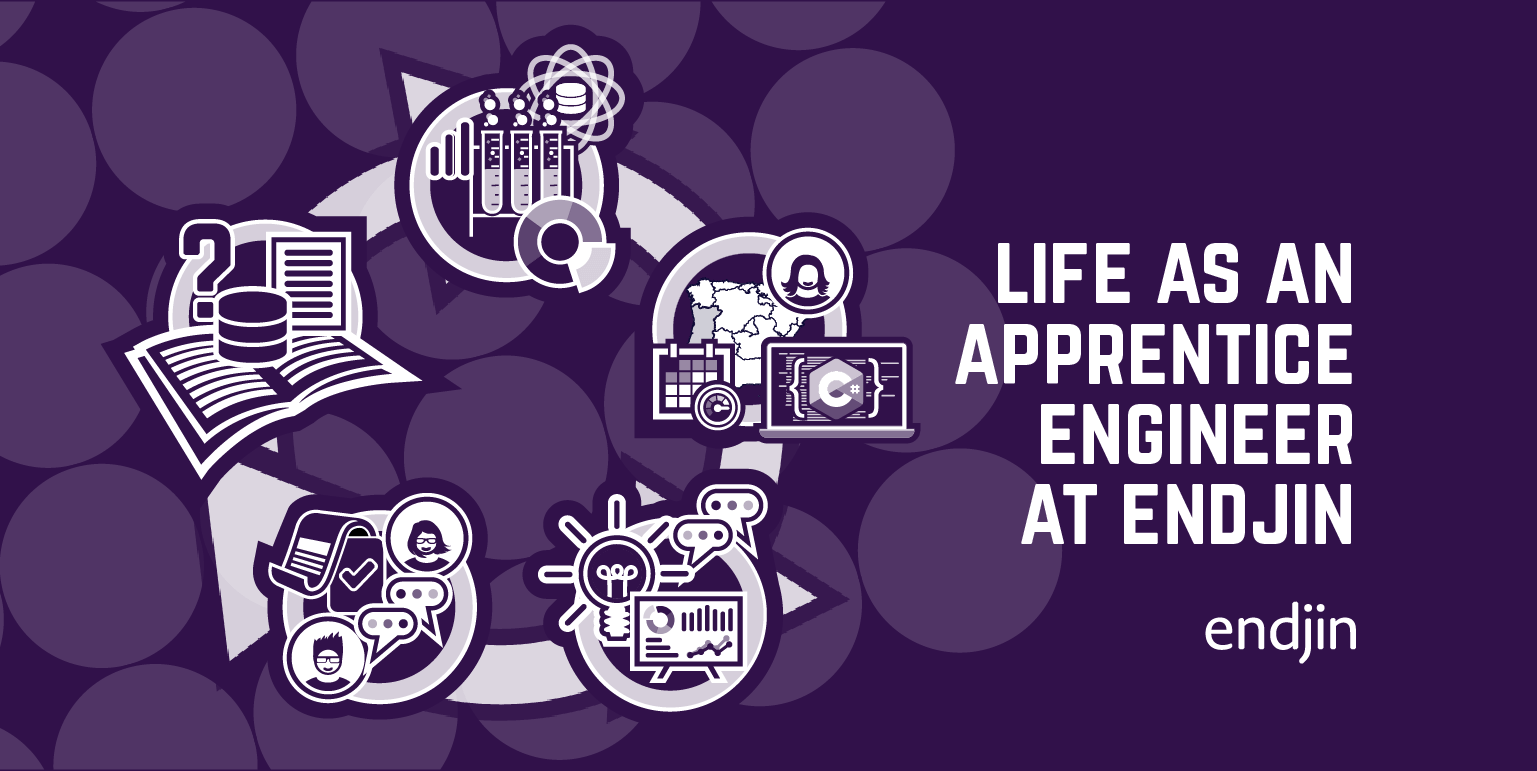Maintaining communication and relationships within a remote team
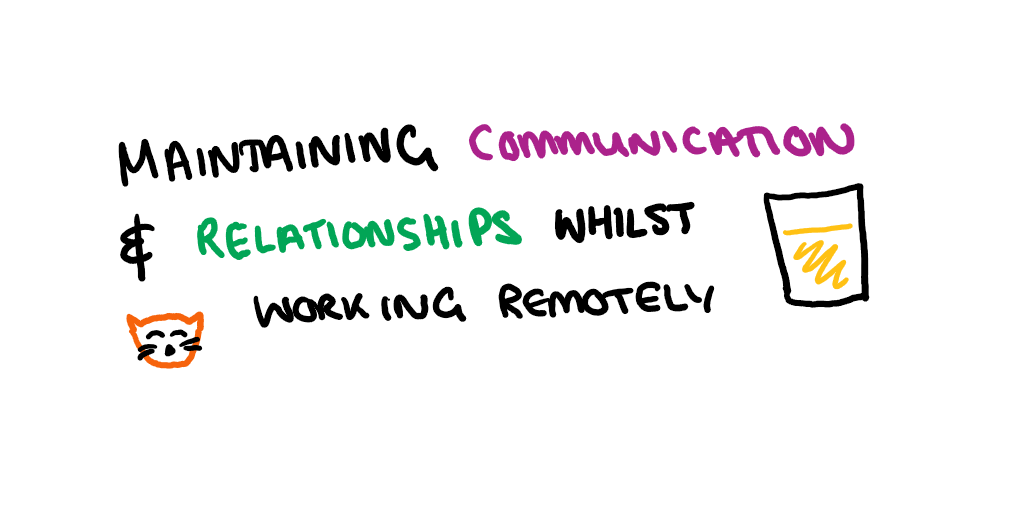
With a lot of people all over the world suddenly finding themselves working remotely, I thought I'd share some thoughts on what I think is one of the most challenging parts of a company going fully remote: maintaining relationships.
Relationships within a team can be difficult to maintain at the best of times. Howard showed me a great graphic about lines of communication a while back:
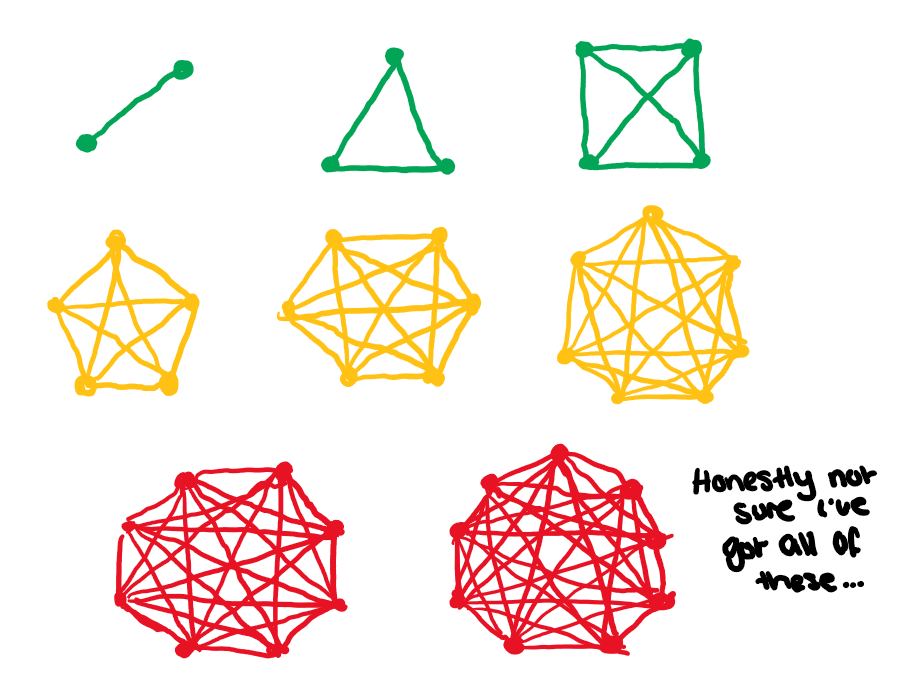
You can easily see from this, that as the number of people increase, the complexity quickly rises. By the end of drawing these I was getting increasingly unsure that I'd made all the necessary connections, and there are only 9 nodes in the final diagram! Not only this, but by only the 4th or 5th I had to start implementing a system for making sure I caught them all. This is just as true for a growing team - making sure that you are still actively speaking to and connecting to everyone is difficult. You quickly find that you need systems (such as regularly scheduled catch ups) in place for making sure that these connections happen. This problem can then be hugely exacerbated by no longer being in the same place as those you work with.
Remember to ask: "How are you?"
A move to working remotely, especially a sudden one, means that a lot of things which would normally take little-to-no effort (greeting your colleagues, having a chat, gauging how someone is doing) now require conscious thought. This means that, in the chaos, they can often be forgotten.
I think this is important to keep in mind when having day-to-day interactions with those you work with. When working remotely it is easy to skip parts of the conversation which are not relevant to work. However, I think it is still just as important (maybe even more so) to continue to greet those you work with, ask them how their day has been, check in on how they are doing. I think this is especially important at the moment when everyone is dealing with a lot, and could be cut off from much of their usual support network.

Make "popping up" the norm
Another thing which is easy when working in a physical office is to "just pop over for a chat". This can seem like a much weirder thing to do if you have to specifically seek someone out and message them. However, I think building an environment where "popping up" is commonplace is really important. Impromptu IM chats or calls are really great for still feeling like lines of communication are open. Without this, we often end up with far less of an idea what is happening in the lives of the people we work with, and what is happening more generally with the company as a whole.
Something which we have experimented with a bit here at endjin is having a channel constantly open in which people can drop in and out (we used Discord for this purpose). This is great because it means that you can "drop in" when you have a natural lull in concentration, and drop out as needed. It also means that if you can see who's currently in the room it creates a similar environment to a break-out room, where people gravitate towards it when they can see something is happening. I think that the kind of conversations that happen in these environments are crucial to feeling like you are a part of a cohesive team.
Use an instant messaging tool
And, to support this, I think it's important to be using a tool with some kind of instant messaging functionality (we mainly use Slack for this purpose, but I know that MS Teams also works quite well). I have spoken to a few friends who are currently using calls and emails as the only methods of communication. Now, instant messaging comes with it's own set of challenges (miscommunication, loss of important information in the noise), but I think that having a low-effort, less formal method of communication is really important.
So, don't use IM all the time, but have it available so that you have somewhere that people can post pictures of their new office mates without sending out a company-wide email.
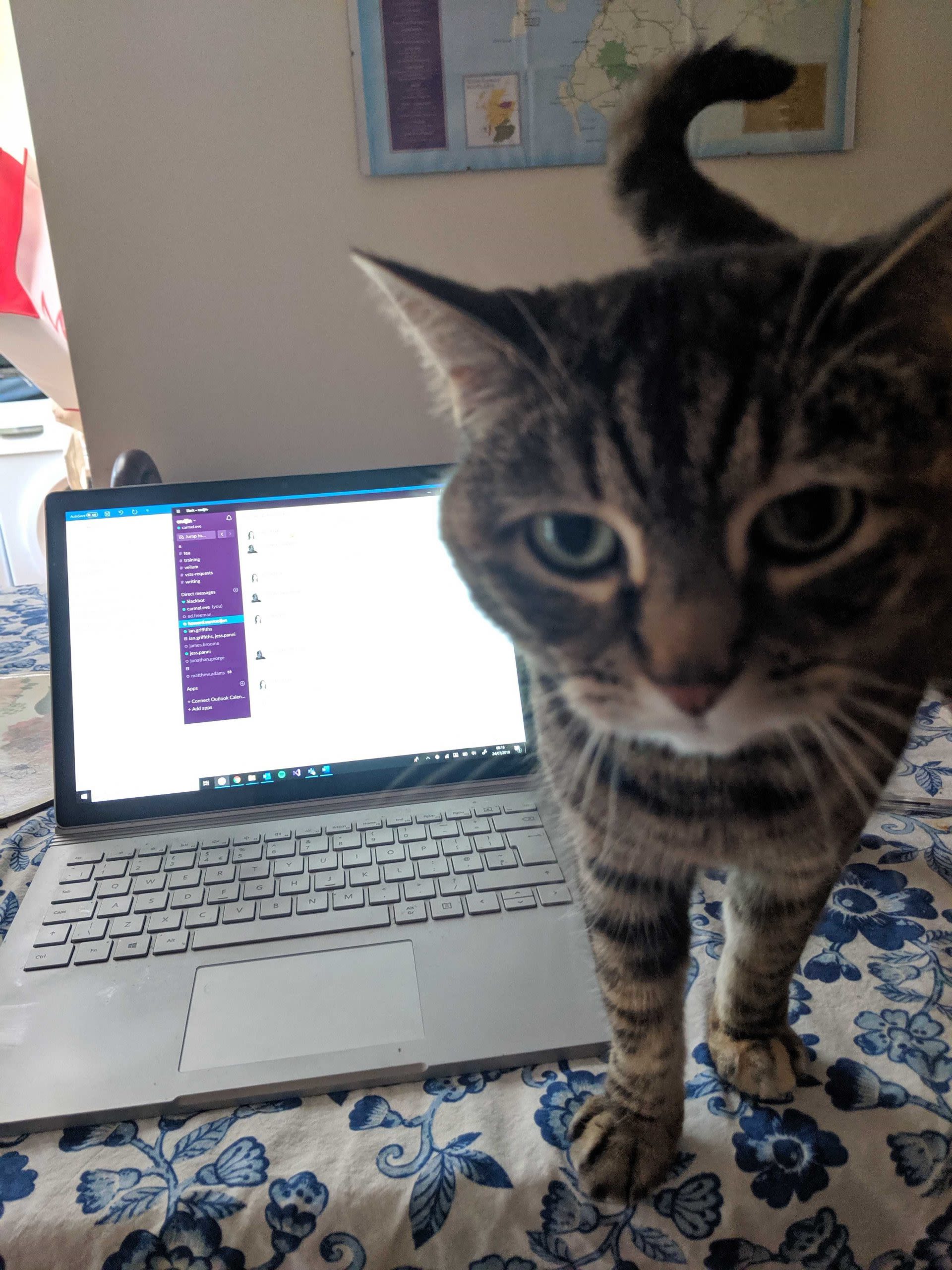
Have a "daily updates" channel
This is a really low-effort way to keep up with what everyone is doing. Here at endjin, every morning we post a quick update on what we did the day before, and a runthrough of what we're planning on doing today. An example might look like:
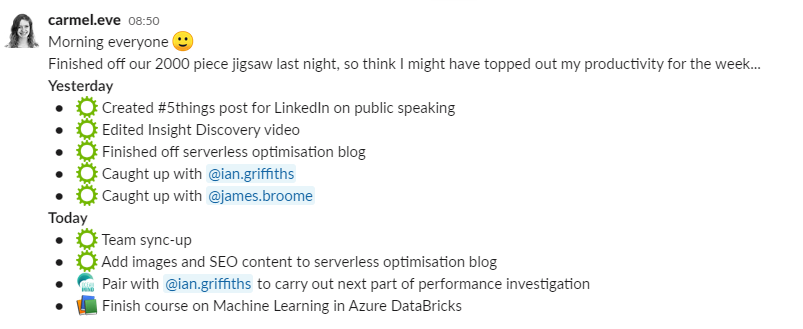
This way we can easily skim through the daily updates channel for a quick update on what everyone is working on.
We also use this in place of a daily stand up, instead having two calls a week:
- On a Monday, to do a quick retrospective of the previous week and to run through the taskboard for the coming week.
- On a Thursday, to review progress and descope anything which doesn't look like it will be achievable.
Find other ways to socialise
And finally, I think the social aspect of work is one of the hardest things to maintain as you move towards remote working. One of the main ways alleviate this at endjin is by having regular team meet ups. This means that we still regularly see each other in person, which makes some of this relationship maintaining a lot easier. Clearly that is not currently possible, so trying to find other ways to subsidise this is crucial.
A lot of people I know are having weekly "after work drinks", or Friday afternoon casual chats, with the other members of their teams. I think this is a really good idea because it gives people a chance to catch up where there is less expectation of talking actively about work (though naturally we all often end up there anyway...). This means that you get some semblance of those same more general conversations about what is happening, both with the company as a whole and more personally with different members of the team.
However, it's important to mention that once these meetings get too large (generally as soon as you have more than about 8 people, most are just sat listening rather than taking active part), it would be better to split these up into smaller meetings. Zoom has some functionality to support this (where people can break off into smaller meetings), but due to the recent questions about the platform's security, I'm quite reluctant to recommend it. So, if anyone has any more suggestions of good ways to achieve this same "break out room" effect, please let me know!
Other things which I know people are doing include:
- A company quiz
- Coding leaderboard
- "Bake off" (I like this idea because it means you also get to eat all the cake, though I guess it is somewhat flour dependant...)
- Yoga
- A whole host of online games (Jackbox, codenames, dominion, and I'm sure thousands more...)
Essentially I think that anything which gives people something to talk about outside of work and the apocalypse is something that we all need at the moment!
